Mercedes - the fall of a star, you might say, given the decline of the team from its once mighty dominance of recent years to its now shock midfield position in F1.
After eight consecutive seasons as constructors' champions, the introduction of the ground-effect era has dramatically altered the landscape, and Mercedes has struggled.
When the 'zeropod' concept launched in 2022, it raised eyebrows, but was initially lauded for its design, particularly as Mercedes had opted for a different development route compared to its rivals.
It soon became apparent the car was flawed, and floundered, like many others in fairness, with the porpoising phenomena that overshadowed that first year on track.
Mercedes worked tirelessly to eradicate the issues, and when the team scored a one-two in the penultimate race of that year, spearheaded by George Russell, it appeared as if a corner had been turned.
Under the technical direction of Mike Elliott, the team persevered with the 'zeropod' into 2023, much to the chagrin of Lewis Hamilton who had urged the team to make developmental changes, notably requesting the cockpit be shifted more towards the rear to provide greater stability in that area.
When the W14 hit the track, it quickly became apparent Mercedes had not learned from the lessons of the previous year. Team principal Toto Wolff, in particular, was far from happy, resulting in the team being forced to make alterations, but constrained by how far it could go due to the restrictions placed upon it by the budget cap.
In May last year, Mercedes confirmed a change in its technical leadership, with James Allison returning to the post after a period as the team's chief technical officer, responsible for a more over-arching view of the company. Elliott, meanwhile, took on the CTO position.
At the beginning of this year, it was announced Allison had signed a new five-year deal as the team looked for stability and continuity within its technical group. At the time, Allison announced the W15 would be "a challenger" rather than a favourite.
Viewed by others:
During pre-season testing in Bahrain, there were early promising signs. Compared to its predecessors, and in terms of its behaviour, the car was more predictable through the corners and seemingly more well-balanced.
When it came to the first race of the season at the same circuit a few days later, however, the reality was different. The car was slow, specifically in extracting performance over a complete lap, and in terms of race pace.
In the following two races in Saudi Arabia and Australia, and especially the latter, to extract performance in terms of setup, the height of the car was taken to extremes, with it greatly reduced, but consequently triggering the return of porpoising,
Alarmingly, given the comments from inside Mercedes, and Wolff, in particular, the engineers are unclear as to why the car possesses what could be described as a sinusoidal performance.
In essence, at certain moments, it is as if there is a virtual switch that does not allow it to replicate the same level of performance as obtained in a previous session.
The drivers' discomfort is evident, with Hamilton helpless given the performance of a car that he considers to be in line with the disappointment of the previous two seasons.
The concept of the W15 appears rather conventional. It should have offered a guarantee of providing a valid base for the developments that will be introduced during the season.
But from what has emerged over the first three races, the application of downforce, and above all its distribution, appear to be lacking on this car which is also unable to fully exploit the operating window of the tyres and to effectively manage their degradation.
Even more worryingly, there is a lack of correlation between what is seen in the data from the wind tunnel and CFD, to what then appears on track, making understanding practically impossible.
The situation at Ferrari is opposed. Over the first three races, the Maranello engineers obtained all the relevant confirmations they had hoped for from the track.
The SF24 has proven to be a considerable step forward compared to the SF23. Of major significance is the fact it has not inherited the defects that prevented last year's car from being more competitive.
The balance of the current car is its strong point, in tandem with its ability to manage the tyres. That balance, as well as the work put in on the suspension, has ensured precision of the front end when entering a corner and traction at the rear when exiting.
The SF24 is still shy of the level of Red Bull's RB20, despite Carlos Sainz's victory in Melbourne - aided, of course, by Max Verstappen's early retirement.
But at Albert Park, and also in Jeddah, the car appeared to be the one that suffered the least from graining, primarily induced by sidewind gusts. In essence, the SF24 is a valid platform on which to apply future developments.
To that end, suggestions of upgrades planned for the Scuderia's home race in Imola in mid-May being brought forward to next weekend's race in Japan have grown.
RacingNews365 sources have indicated that a modification to the floor will be made, focused on the central section. For Imola, it is understood the sidepods will also substantially change.
In short, it seems correct to state the ideas in Maranello are clear on how it needs to proceed with the development of its car without losing the valid dynamic characteristics it now possesses.
In contrast at Mercedes, there appears to be confusion over the direction the team needs to take to extract itself from its current malaise. It may be some time before the star rises again.
Most read


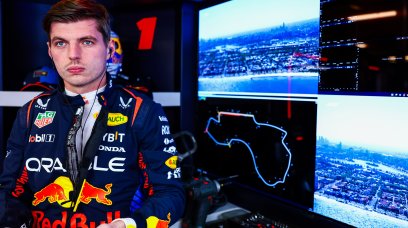

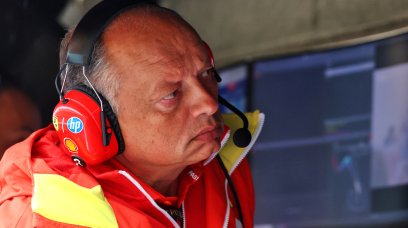
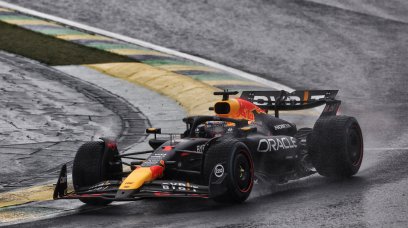
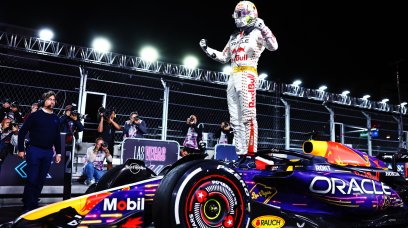
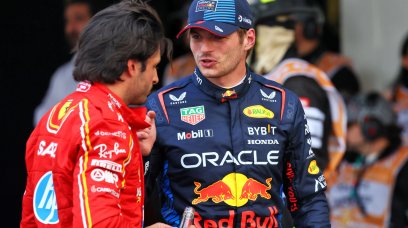


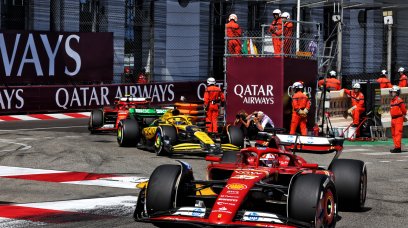












Join the conversation!